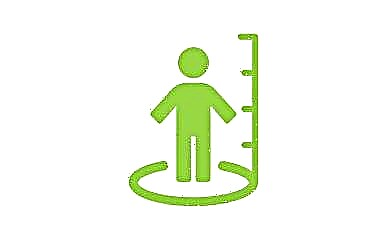Offenses not requiring punishment. What is important to remember for parents before punishing a baby.
Not a single upbringing is complete without punishment, even the most patient parents once resort to them. A child who is allowed small pranks sometimes crosses the line, even realizing that he is doing wrong. Together with the child, the degree of his misconduct grows.
It is important for parents to determine how much punishment is generally necessary and what measures are best not to resort to.
Punishment should be a kind of lesson that allows the child to realize his own mistakes and not repeat them again.

No punishment for it
Let's figure out what misdeeds of the baby do not require punishment:
- Knowledge of the world and everything new. If a child constantly drags stones into his mouth, tries to touch the iron, checks the strength of a toy, the punishment is inappropriate. This behavior is a natural reaction of the baby, he learns the surrounding reality, tries to absorb information about objects and their properties. Of course, this is natural until a certain age, a five-year-old crumb with a pebble in his mouth, this is already simple self-indulgence.
- No experience. You should not punish the crumb for the inability to go to the pot, awkward movements, unconscious damage to furniture, taking away toys from children on the street. Perhaps your child simply does not have enough life experience and skills.
- Jealousy and affection. If your kid threw a tantrum without letting his mother go to the store, or refused to play with his younger brother because of jealousy, this is not a reason for punishment. And the incentive to sort out the relationship, find out the reasons for jealousy and explain to the baby in an accessible way that the mother can be absent, but will never leave him.
- Immediacy. Kids are by nature naive and spontaneous, they can tell a family secret, or even come up with fairy tales. It is better to replace punishment with serious conversation, as in the case of simple negligence. Crumbs often show fearlessness and spontaneity, it is important to make it clear to the baby what his actions will lead to trouble.
- Physiological needs. Punishment should not follow a refusal to eat, or the constant requirement to go to the toilet when parents are very uncomfortable. Like any person, a child may or may not want to eat, drink, or go to the toilet.
Physical punishment

Psychologists argue that physical violence, constant slapping and slapping lead to mental disorders even in adulthood, and during school years, a child may not be able to keep up with subjects and avoid peers.
Cheating by children is also often associated with physical punishment.
If your nerves are at their limit, leave the room. You will calm down yourself and give the child the opportunity to be left without a spectator of his tantrum, or misconduct. The child will also come to his senses and calm down. Most likely, he will come running after you if he is already calm. Do not go on screaming, but calmly explain what the baby was wrong about and take a promise not to do it again.
- Why you can't spank a child - 6 reasons
- To beat or not beat a child - consequences of physical punishment of children
Darkness
Never close a child in a dark room "to think". You can't use childhood fears as a way of censure. Not only does the baby feel rejected, but also his psyche suffers greatly. Punishments associated with the child's fears can lead to suicidal tendencies, paranoid tendencies, and phobias.

If you have already decided to punish the child with loneliness, let him remain alone in a bright room, he will calm down, think and draw conclusions. Be sure to talk to your baby later and show forgiveness.
Screams
It is strange to try to shout down a capricious child, or to twist him. More often, while the parents are screaming, the baby remains in a stupor, not understanding what is happening. While the child is hysterical, he is little capable of realizing his act and its consequences, so it is better to distract the baby, make him laugh, switch his attention to an interesting object.
Young children perceive screaming as physical punishment.
Watch yourself, control your anger.

Threats
As a punishment for a misconduct, parents often simply threaten the child with violence or refusal to walk or entertain. They are not going to fulfill the threat, and the child, meanwhile, waits and worries and does not understand why the parents want to do this.
If you decide to punish your child, do it right away, or don't do it at all.
Never take away gifts so that the baby does not doubt your sincerity when you bring him joy.
Food
Do not punish your baby by not giving him food or by forcing him to eat. You don't want to ruin your baby's health and digestion. Adequate nutrition is the basis of a child's health, so dietary restrictions will not lead to anything good. It's another matter if you refuse sweets, if the baby is allergic, but in this case, find an alternative, sugar-free bars, homemade sweets using fruits and dried fruits.
Work
For a child, help to parents, work, activities should be taken for granted, the usual components of life, and not punishment. The child should not develop a stereotype that work is a punishment and not a necessary activity.
On the contrary, you need to let the baby realize how pleasant it is to receive fruits from their labor.

Comparison
It is very painful for a child to hear that you think someone is better than him. It would be a mistake to think that comparing the baby with other children, you motivate the child to become better. In fact, he may try to be like an object of comparison, but at the same time he will feel unloved, rejected. A child can be hypertrophied about his shortcomings, only withdrawing into himself and trying to prove to you that he is good.
Try by all means to let your child understand that you love him in any way, with all his shortcomings, under any circumstances, he is the best for you.
And you can compare the baby with him, "you were so wonderful, obedient yesterday, that would be so now."
Never use the words “I don’t love you,” “I don’t need you like that,” “go to another mother,” etc. Such phrases hurt painfully, giving rise to doubts in your love and building up complexes.
Ignoring
As a punishment, of course, you can leave the crumbs alone for a while, but do not ignore him for a long time. The kid may decide that he is so bad that they do not want to communicate with him. Ignoring is, in fact, a powerful manipulation, it can create emotional dependence, fear and alienation in the child. The thought that he can be rejected by loving people causes panic in the crumbs.

You do not strive for such an outcome of events, which means that you must comply with the framework of ingering.
Memo to parents about punishments
- One offense - one punishment, there is no need to dump everything that the child was guilty of and come up with a whole series of punishments. Let the baby realize what he is being punished for;
- Do not forget to encourage the child, praise and cheer in every possible way;
- Bad behavior and deeds have their own statute of limitations; there is no need to remember the bad the next day or even later. What has passed is gone, the moment is lost;
- Goodbye, be sure to let the child understand that he is forgiven, and you are not angry again and are ready to lead a normal life and communicate as before;
- Do not humiliate, call names, and do not publicly punish. Your child does not need extra complexes;
- Make the child afraid not of the punishment itself, but of the possibility of offending people close to him;
- Any punishment must be fair. If in doubt, do not punish;
- Always find out the reason for the child's action.
Remember that your punishment should never affect your child's physical and mental health. Show love and care, and create a friendly, calm atmosphere in the family. Love the child already for what he is.
- 8 loyal ways to punish children. How to properly punish a child for disobedience
- 7 big mistakes parents make when fighting with their kids
- Do I need to punish a child at 3 years old: the opinion of parents and a psychologist
How to punish children correctly:



